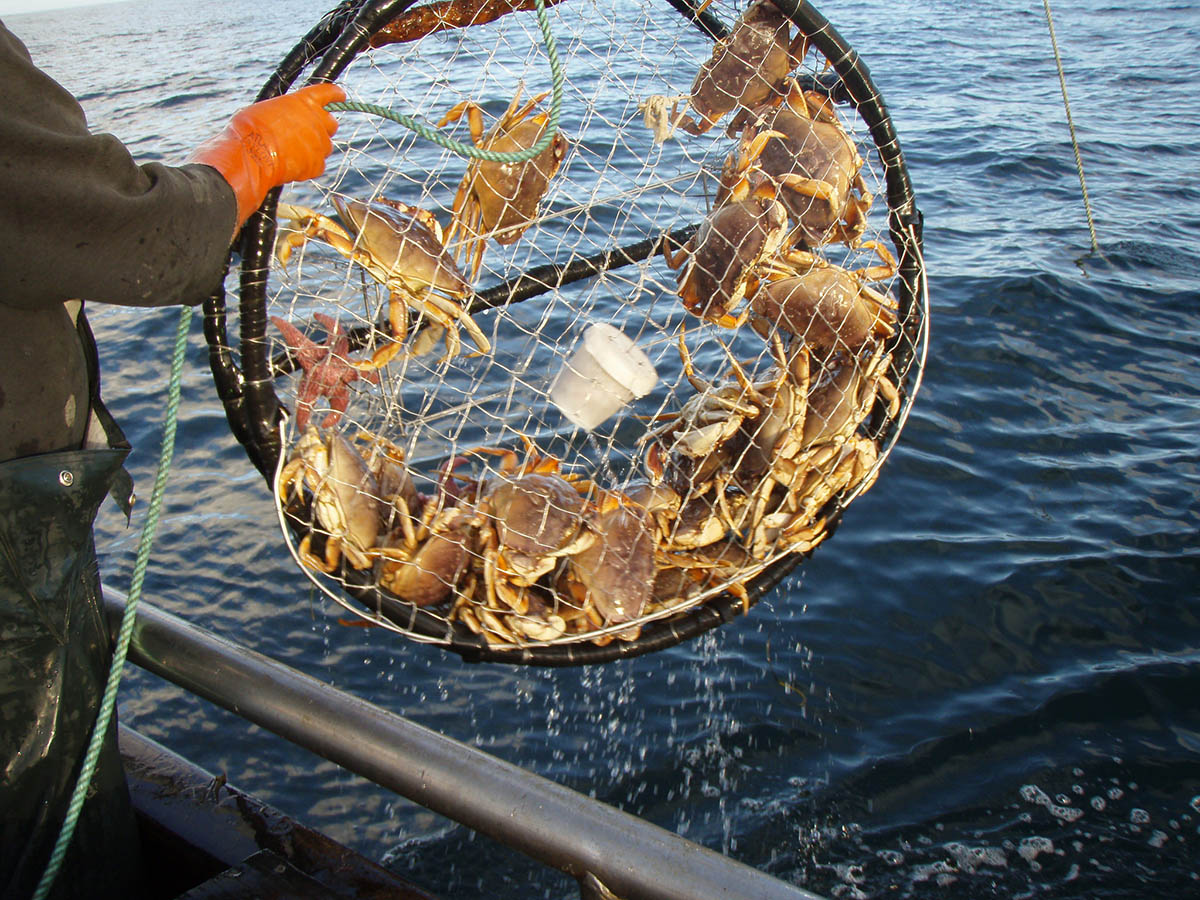Citing a continuing presence of whales on the central California crab fishing grounds, the Dungeness season opener has been pushed back by an additional two weeks to Dec. 16, the state Department of Fish and Wildlife said this week.
Humpback whales were feeding in a familiar nearshore pattern similar to fall 2019 when that season was delayed, and a similar call was made by state officials to delay the crab season start to Dec. 1, pending findings from aerial surveys. The decision came back late Tuesday to hold off again until at least Dec. 16 to prevent risk of crab gear entangling whales.
Based on aerial and vessel surveys and observer reports along the coast, the state agency “after consulting with the Dungeness Crab Fishing Gear Working Group, is enacting a delay in the central management area,” said state fish and wildlife Director Charlton H. Bonham in announcing the decision. “Available data indicates the whales still remain in the fishing grounds.”
The California Coast Crab Association complained that the recreational crab fishery was “inexplicably” allowed to start on time in early November even as state officials contended too many whales were around for commercial gear to be set.
“It's absurd that CDFW continues to delay the commercial fishery, which thousands of families depend upon for their fall and winter income, and also continues to deny access to millions of Californians who wish to buy our crab, when the recreational fishery poses the same potential risk of entanglements,” said association president Ben Platt. “If the commercial fishery is sidelined due to potential whale interactions, then the recreational fishery, with thousands of traps now deployed in Central California waters, should also be stopped.”
Meanwhile, the Dungeness crab season in the northern management area was scheduled to open Sunday, Dec. 1, but that too is now delayed until Dec. 16 due to low meat quality, state officials said. Criteria for meat quality is another factor in season openings, under industry and state cooperation to ensure high-quality product when the fisheries open northern California, Oregon and Washington.
Bonham said he and his staff will evaluate entanglement risks in the central and northern areas in early December toward making a decision to open the season.
“Our hope is both quality testing and additional marine life survey data will support a unified statewide opener on Dec. 16, just in time to have crab for the holidays and New Year,” said Bonham.
The California Coast Crab Association remains unhappy with the state’s newly adopted rules for reducing entanglements, which Platt says is a vastly overstated risk to the estimated 7,200 humpback population.
“The California Dungeness crab fishery had only one confirmed interaction with a whale last crab season, and that whale was released unharmed,” said Platt in a prepared response to the state announcement. “Our fishery is having zero impact on the species, and in fact, we are hopeful humpbacks will soon be removed from the (federal) endangered species list.”
The state’s new Risk Assessment Management Program “will likely shorten the average season from seven to as little as two months, and because the crab fishery is the most widely shared and economically important fishery on our coast, the new regulations threaten the continuation of the entire West Coast commercial fishing industry,” said Platt.







